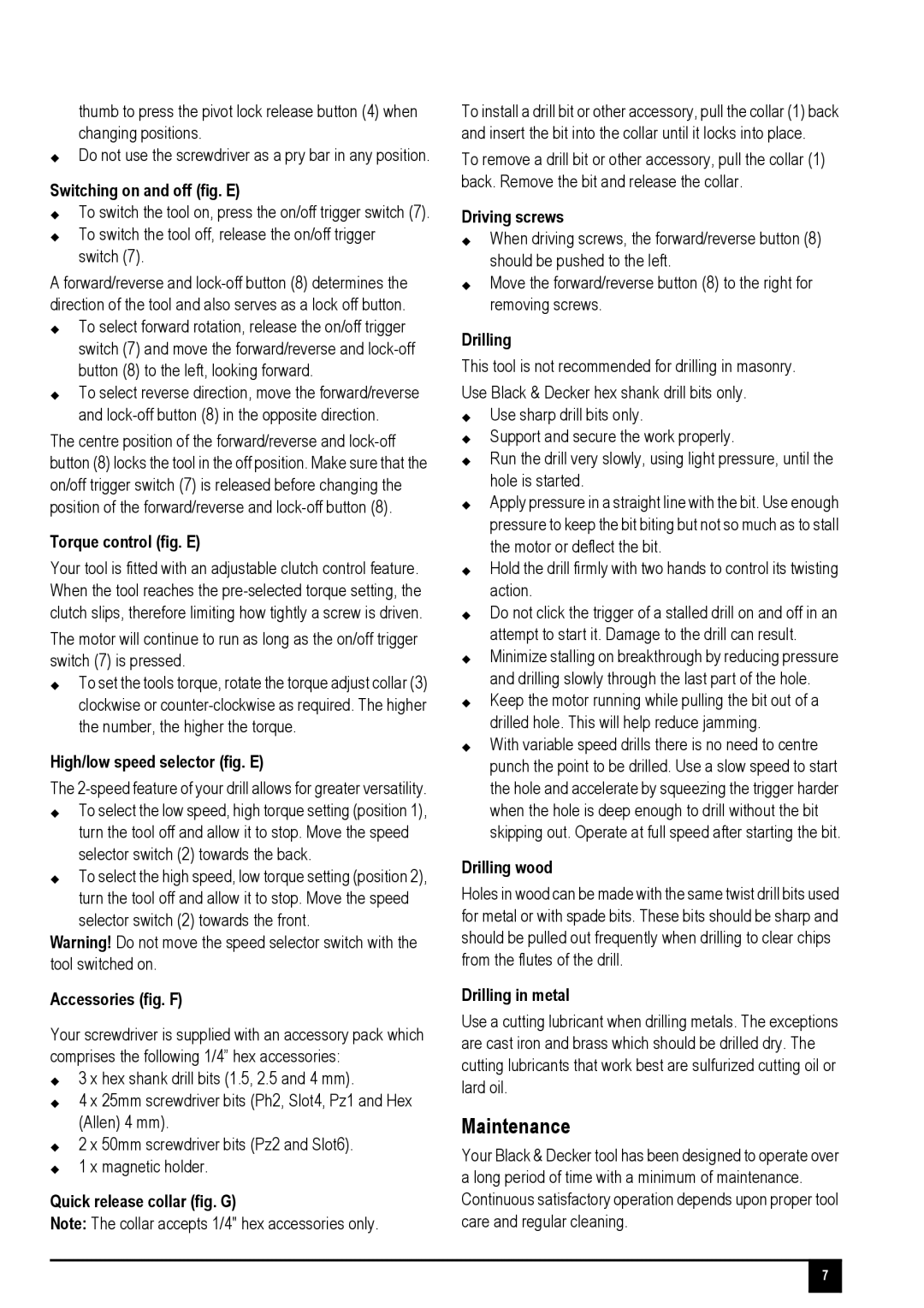HP362, 90528103 specifications
The Black & Decker 90528103, HP362 is an innovative and versatile tool designed to meet the needs of both DIY enthusiasts and professionals alike. This product is an excellent combination of performance, durability, and user-friendly features, making it a popular choice among those who value efficiency and reliability in their power tools.One of the standout features of the HP362 is its powerful 6-amp motor, which provides ample strength for a variety of tasks. Whether you're drilling through wood, metal, or plastic, this tool offers the torque and speed required to complete projects effectively. The variable speed settings allow users to adjust the drilling speed according to the material, enabling precise control and ensuring a clean finish every time.
The design of the HP362 is ergonomic, with a comfortable grip that reduces fatigue during extended use. The lightweight construction makes it easy to maneuver, allowing users to reach tight spaces without straining. Additionally, the inclusion of a keyless chuck simplifies bit changes, promoting quick and efficient tool adjustments.
This model also comes equipped with a reverse function, which is invaluable for tasks that require removing screws or backing out drill bits. This reverse feature adds to the overall versatility of the tool, making it suitable for a wide range of applications, from assembling furniture to home repairs.
A significant technological advancement included in the Black & Decker 90528103 is its integrated LED work light. This feature enhances visibility in dark or confined areas, ensuring that users can maintain precision in their work, regardless of the lighting conditions.
Durability is another key characteristic, as this unit is built to withstand the rigors of daily use. Quality materials are used in the construction of the HP362, ensuring that it remains reliable over time.
In summary, the Black & Decker 90528103, HP362 combines power, durability, and advanced features in a user-friendly package. Whether tackling home improvement projects or professional tasks, this tool is designed to provide the performance and reliability that users have come to expect from one of the leading brands in the power tools market. With its ergonomic design, variable speed controls, and added technological enhancements, the HP362 stands out as a top choice for power tool enthusiasts.
